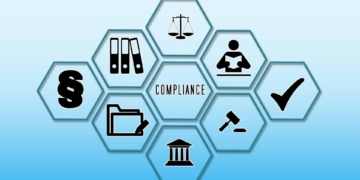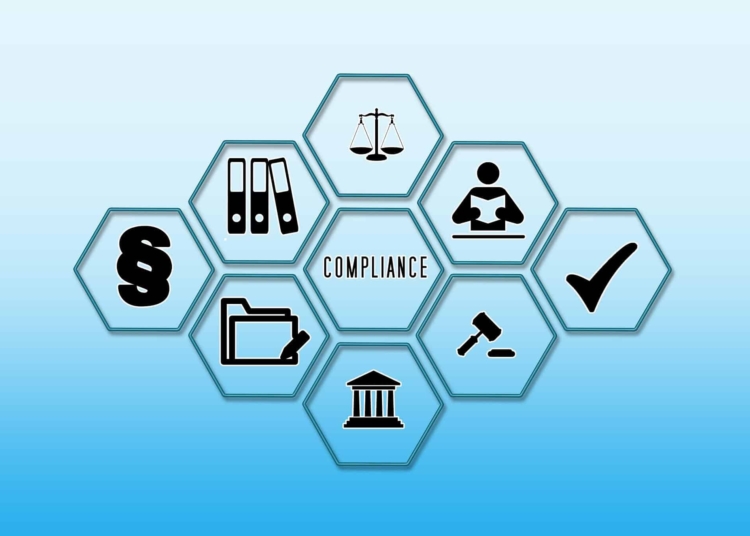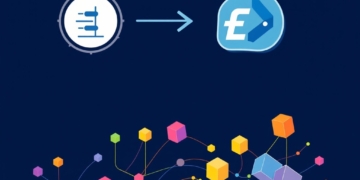Introduction: why T&Cs, regulation & compliance are important in the blockchain and computer gaming space.
Entering new technologies and industries always carries the risk of not complying with the applicable legislation. This is especially true for blockchain and computer games, which are becoming more widespread. Since a majority of games (even more so those that use blockchain technology) are now run over the Internet, they can easily be accessed by players in other countries. Therefore, it is important that operators of such games know what legal provisions apply in different jurisdictions; or, which jurisdiction is relevant to their own actions.
It is equally important that the operators of such games adhere to certain guidelines to ensure the security and integrity of the games. The development of new blockchain and computer games must also be regularly reviewed to ensure that the rules and basic concepts of the games comply with the currently applicable laws. In addition, there is a need for effective compliance monitoring to ensure that laws are observed and that there are no unfair practices.
After all, compliance with laws and regulations is not only crucial for player protection – it is also a prerequisite for companies to be able and allowed to act legally without taking unnecessary legal risks. If companies are unable to comply with the legal requirements or disregard them, they not only risk warning letters or fines – they also risk, above all, their reputation as a trustworthy provider of blockchain and computer games. For this reason, companies should take special care to ensure that their games are and remain compliant with applicable laws.
What are the legal requirements for companies and developers when developing blockchains and computer games?
Blockchain and computer game development is subject to a number of legal requirements that both game publishers and developers must adhere to. To ensure that the project runs smoothly and is in compliance with applicable regulations, it is important that companies and developers understand these requirements. Some of the key legal requirements for companies and developers developing blockchains and computer games relate to the regulation of blockchain content, such as cryptocurrencies, tokens and/or NFTs, compliance with data protection regulations, and the creation and publication of appropriate general terms and conditions (GTCs).
With regard to the regulation of cryptocurrencies and other blockchain instruments, it is essential that companies and developers are aware of all relevant legislation that applies to their project. Some countries have strict regulations regarding trading digital currency or offering NFT – it is therefore important that companies and developers obtain all relevant information before starting the project.
In addition, companies must also ensure that they comply with all data protection regulations when handling personal data. This means that they must ensure that all specific data protection laws in their region are complied with. In addition, they must also take appropriate measures to prevent personal data from falling into the wrong hands or being misused.
Publisher developers should also follow the “rules of the game” for blockchains and computer games. This includes, among other things, ensuring the fairness of all players as well as protection against attempted fraud. It is therefore necessary for companies and developers to take all the necessary security measures and have them audited to ensure that all aspects of the game work according to the rules. Finally, companies should also create and publish appropriate general terms and conditions (GTC). This is especially important when providing blockchain-based gaming content or services to end users or other third parties. The TOS should clearly define which user experiences are provided as well as what risks could arise for users. They should also include detailed information on liability, as well as measures to be taken in the event of unauthorized access to customer data or errors in the games.
The scope of such T&Cs and the challenge of effective and comprehensive T&Cs has unfortunately increased greatly with the implementation of blockchain in computer games.
What are the risks for companies involved in blockchain and computer gaming?
There are some risks that companies in the blockchain and computer gaming space need to be aware of. These include:
1. risk of misuse of customer data: Customers’ personal data can be misused, for example to commit fraud activities. To avoid this risk, companies must review their data protection policies and ensure that they comply with all relevant laws.
2. cybercrime risk: it is possible for hackers to penetrate a company’s network and steal sensitive information such as bank data or passwords. To be protected against this risk, companies must regularly review and update their IT security policies.
3. money laundering risk: as blockchain technology enables more transparent payments, criminals can easily gain access to finance illegal activities. Companies should therefore follow regulatory guidelines and ensure that their system has sufficient safeguards in place to prevent such machinations.
4. regulatory risk: with the increasing popularity of blockchain and computer gaming companies, new regulatory requirements may be imposed. Therefore, companies must always be informed about the latest developments and, if necessary, adapt their business model.
5. compliance risks: Companies must ensure that they comply with applicable laws regarding both blockchain and computer games. Since the legal framework in the area of blockchain & computer games is constantly gaining in complexity, it can be difficult for companies to fulfill and comply with these requirements for terms and conditions & regulations. External expert know-how can not only protect you, but also realize significant cost-saving potentials, as you no longer need expensive internal structures for regulation & compliance . It is therefore always worthwhile to seek professional advice in order to avert potential risks at an early stage.
How can companies reduce their risk by creating appropriate terms and conditions?
Blockchain and computer gaming companies must comply with applicable laws and regulations to mitigate their risk. An essential part of this requirement is the creation of appropriate general terms and conditions. These T&Cs should be specific to the blockchain or computer gaming industry and identify risks relevant to these businesses. Risks that should be addressed in the GTC include:
– Data protection risks, including risks related to the processing of personal data through smart contracts;
– Risks associated with cryptocurrencies, including volatility, manipulation, and fraud; and
– Risks associated with the operation of a decentralized platform or game, including technical failures, incompatible software and hardware, and network failure. D
he GTC should also clearly define what the company will do to minimize or eliminate these risks. For example, the T&Cs can stipulate that the company will conduct regular security audits to identify and close potential security gaps. In addition, the T&Cs should specify what measures the company will take to ensure that the cryptocurrency holdings or NFT to which the company has access are protected from tampering (including unintentional transfer to third parties, etc.).
However, the creation of T&Cs is only part of the compliance requirements for blockchain and computer gaming companies. These companies must also ensure that they have the necessary licenses and permits to offer their games and platforms in the respective jurisdictions.
How can companies implement an effective compliance management system to ensure adherence to regulatory requirements?
An effective compliance management system (CMS) is essential for professional companies dealing with the legal challenges of blockchain technology and computer gaming. This is especially true if you plan to bring larger investors on board or have already raised funding.
However, implementing such a system requires thorough planning and preparation.
First, companies should create an overview of the various compliance-related laws and regulations that are relevant to their business. This should be the basis for the creation of a compliance policy in which the respective legal requirements are described in detail. In addition, the policy should specify how the company intends to deal with possible violations. The company must then implement a monitoring system to ensure that all employees adhere to the compliance policy. This certainly includes conducting regular employee appraisals and offering training where necessary. In addition, companies should conduct regular internal and external audits to ensure that the CMS is functioning effectively.
Conclusion: Steps to establishing a successful T&C, regulatory & compliance program.
In a fast-moving industry like blockchain and computer games, it’s important to adhere to legal standards. With the right measures in place, companies can establish an effective T&C, regulatory and compliance program to ensure adherence to the law. First, the company must ensure that its general terms and conditions comply with all relevant regulations. Specific rules for the use of blockchain technologies and computer games should also be established.
In addition, the GTC must be regularly reviewed and updated to ensure that they comply with the applicable legal systems. Unfortunately, this is often disregarded!
Finally, you should clearly define your compliance policies for blockchain technology and computer games. These guidelines should take into account all relevant legal requirements and be easy for all employees to understand. It is important that these policies are regularly reviewed and updated to ensure that the CMS also complies with the applicable legislation.
Lastly, every company should take seriously the responsibility to implement a strict compliance policy regarding blockchain technology and computer games. This includes a system for monitoring all transactions and actions, as well as a system for assessing the risk of all transactions. It is important to always have an overview of all employee actions. This allows you to take action in time, if necessary. By taking these steps, any company can establish an effective T&C, regulatory & compliance program to best meet their blockchain & computer gaming obligations.
I am happy to provide support, of course, and bring 25 years of experience as a computer game & media entrepreneur and 15 years of experience as an IT lawyer.


































